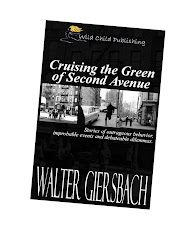 Judy complained uncharacteristically of being tired and in pain, and half an hour later she was gone. It was the end of a 46-year marriage in which “she” and “I” became “we.”
Judy complained uncharacteristically of being tired and in pain, and half an hour later she was gone. It was the end of a 46-year marriage in which “she” and “I” became “we.”The months since then have been a long and difficult, costly in terms of burial arrangements and mental turmoil, and unusually quiet with just half the household noise and even less conversational chatter.
Slowly, I’m uncovering the bits and pieces of her life that I wasn’t aware of. There is loose change in the pockets of her jackets hanging in the closet. Clothes and purses and scarves that still have store tickets attached. Our children’s greeting cards for Mother’s Day and Valentine’s Day from years ago. Utility bill receipts from a decade ago.
Tucked in her bedside table were half a dozen hung bau, little red envelopes Asians use to gift children or elders with money on the Lunar New Year. Each contained a $20 bill. These — along with the clothes and purses — were gifts just in case someone came to our house and was celebrating an event. These were stored and ready just in case she suddenly needed a birthday present or there was a surprise guest during a holiday.
We took Judy home to Northfield, Mass., for burial in the cemetery where she’ll be with my parents, brothers, grandparents and great-grandmother.
And then a curious thing happened. Following the interment service, the pastor came to me and said, “While you were speaking this leaf fell on your shoulder.”
I take it as an omen, that Judy was listening. And I have more to think about now than the things she left behind.



